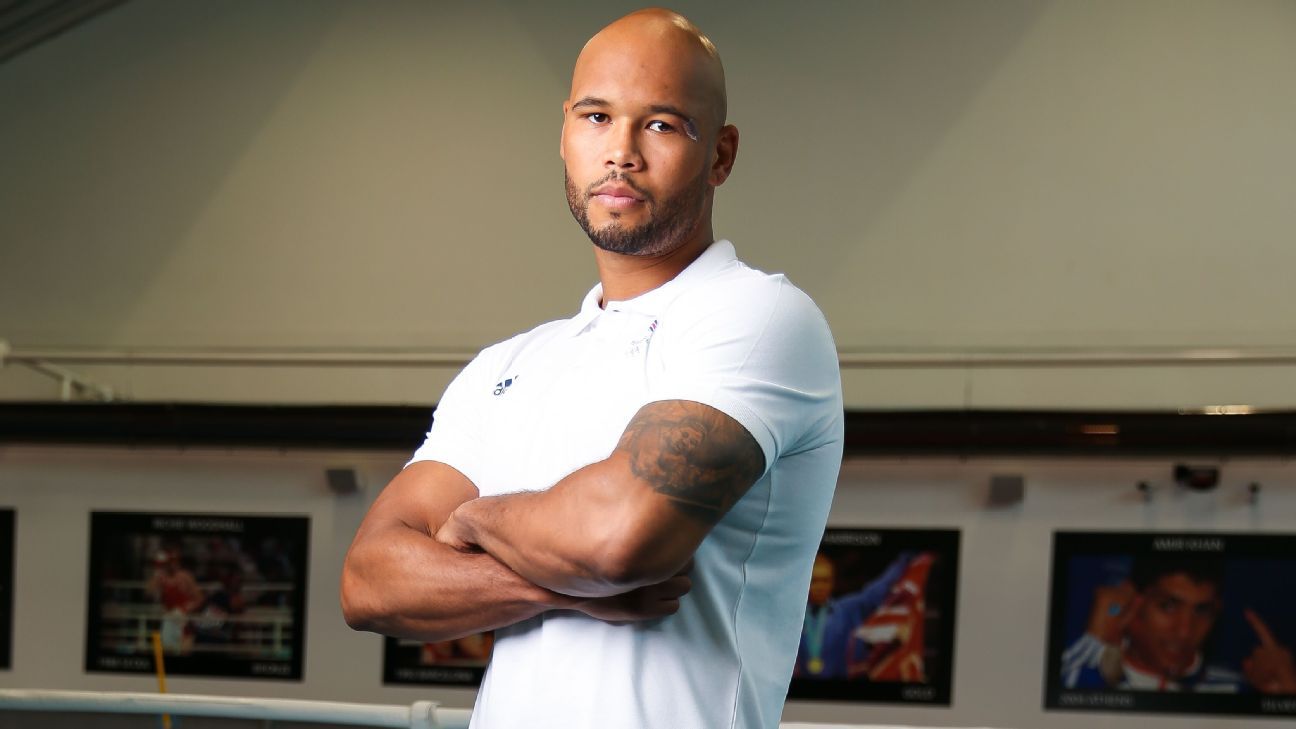Frazer Clarke will begin his attempt to win Olympic gold in the men’s super heavyweight category on Saturday, and although Tokyo 2020 was delayed by a year, the British boxer still had to wait longer than most athletes to live his dream at the Olympics.
The 29-year-old joined GB Boxing Development squad in 2010 — and almost lost patience when the Olympics was postponed due to the coronavirus pandemic.
Clarke, from Burton-on-Trent, Staffordshire, last year considered turning professional instead of waiting for the Games, but Team GB coach Rob McCracken — who is also Anthony Joshua’s trainer — talked him out of it.
“At the time I reacted on emotion, I was angry that the coronavirus had hit at what was supposed to be my time,” Clarke told ESPN.
“For a few weeks it really did get me down. I don’t like to use the word depression because a lot of people go through a lot worse but my head was all over the place and the professionals seemed like the next best thing.
“But then after sitting down and speaking to Rob McCracken, who has been my go-to for making boxing decisions, he explained to me that to turn professional and maybe fight once or twice is not going to do a lot for you. So I thought stick with what you know and follow your heart, your dream, and just be patient. I’ve been patient my whole career and patience is something I’m good at.
“Finally qualifying, I’m glad I made that decision to stay on.”
When Joshua won gold in 2012, Clarke was in the GB set-up, but was left disappointed when Joe Joyce was selected ahead of him for Rio 2016, however he still went to Rio as a sparring partner for Joyce, who won silver in the super-heavyweight division.
Clarke has also sparred with Joshua, the reigning WBA-IBF-WBO world heavyweight champion, ahead of world title fights, but he does not see that experience as an advantage over his Tokyo rivals.
“In a sense it’s good to have been in with those guys like Anthony Joshua and Joe Joyce, but they are in a different sport now and sparring is sparring,” Clarke said.
“I don’t take too much from sparring. It’s always good experience to get in with those guys but I feel more that the competition I’ve had since Christmas is going to help me. I’ve had nine bouts since Christmas, boxing different styles.”
Clarke’s Olympic dream was also nearly KO’d in 2016 when he was stabbed.
“I was in the wrong place at the wrong time in my local town, maybe I was getting up to stuff that I shouldn’t have been as an elite athlete and had drifted off the right path for a bit,” he said.
“I was out drinking, got into an altercation and during the fight I was stabbed three times once in the neck and twice in the leg. At the time I had two-week old daughter so it was really a dreadful time for me and my family and I remember at the time thinking am I going to be here to bring up my daughter?”
Great Britain’s super-heavyweight Olympic medals
-
2016 Joe Joyce – silver
-
2012 Anthony Joshua – gold
-
2008 David Price – bronze
-
2000 Audley Harrison – gold
-
1984 Robert Wells – bronze
Now Clarke, captain of the Team GB boxing team and a father to a second child, has aspirations to continue Britain’s run of success in the sport from the previous three Olympics.
“I want to have that medal and have my picture on the wall in the gym at Sheffield [where Team GB boxing is based],” Clarke said, who has worked as a security guard at professional boxing shows.
“I think we are in the best position I have seen in the two squads I have seen personally. I’m experienced, I’ve seen two Olympics squads, I’ve seen how people peak and I think we’re in a good position.
“Leading the pack is Pat McCormack, for me he’s the standout fighter in this group. Just beneath him you’ve got other great fighters like Peter McGrail, Ben Whittaker, Luke McCormack, Lauren Price, Chevron Clarke, Karriss Artingstall, Caroline Dubois and they are all forces to be reckoned with at tournaments all around the world.
“I feel that when we go to tournaments people don’t want to draw these fighters. I also know the reality of it, that we are going to need a little bit of luck, you are going to have to produce your best performances and there’s a lot of factors go into winning a medal at the Olympics and it’s not boxing, there’s a lot more to it.”
